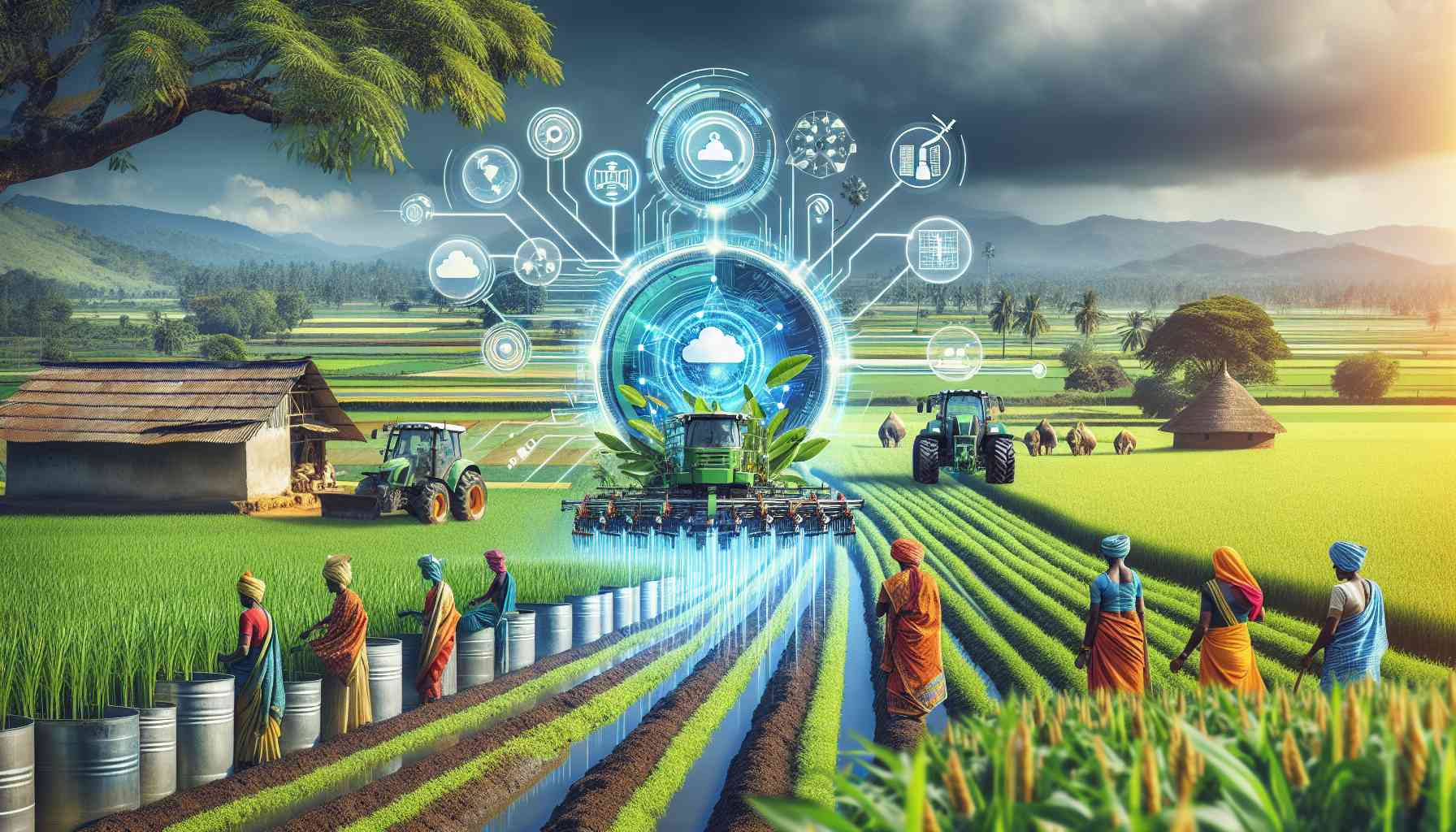India’s smallholding farmers face numerous challenges, including unpredictable weather patterns, the adverse effects of climate change, pest infestations, and declining yields. Additionally, they often struggle with financial constraints, relying on high-interest loans from local lenders. Post-harvest issues, such as crop wastage, logistics, and limited market access, further exacerbate their plight, with up to 40% of produce going to waste. Market fluctuations and the inability to meet quality standards only add to their struggles.
However, in response to these challenges, the World Economic Forum’s Artificial Intelligence for Agriculture Innovation (AI4AI) initiative has emerged as a beacon of hope. Led by the Centre for the Fourth Industrial Revolution (C4IR) India, this initiative brings together government, academia, and business representatives to develop and implement innovative solutions in the agriculture sector, focusing on the transformative potential of artificial intelligence (AI) and related technologies.
A notable success story stemming from the AI4AI initiative is the ‘Saagu Baagu’ pilot project, undertaken in partnership with the Telangana state government, specifically in the Khammam district. With support from the Bill and Melinda Gates Foundation and implementation by Digital Green, this project has brought remarkable improvements to the chili value chain for over 7,000 farmers. To enable this transformation, the Telangana government has played a pivotal role by creating essential infrastructure and implementing progressive policies, including the establishment of India’s first agriculture data exchange and agri data management framework.
The ‘Saagu Baagu’ pilot project has already shown significant results during its initial phase of implementation. Farmers involved in the program experienced a remarkable 21% increase in chili yields per acre, a 9% reduction in pesticide usage, a 5% decrease in fertilizer usage, and an 8% improvement in unit prices due to enhanced quality. As a result of these improvements, farmers have witnessed a substantial increase in their incomes, with earnings per acre per crop cycle rising by more than INR 66,000 (approximately 800 USD), effectively doubling their earnings. These outcomes not only highlight the efficacy of ‘Saagu Baagu’ but also demonstrate its significant contribution to sustainable and efficient agricultural practices.
Buoyed by these successes, the Telangana government has recently decided to expand the scope of the ‘Saagu Baagu’ project. With a mission to impact 500,000 farmers across ten districts and five different crops, this expansion is a strategic move aimed at maximizing the benefits of innovative agricultural technologies. It holds the potential to revolutionize the agricultural landscape of the region, paving the way for increased productivity, income growth, and sustainability.
In conclusion, the integration of artificial intelligence in Indian agriculture, driven by initiatives such as AI4AI, is proving to be a game-changer for smallholding farmers. Through the adoption of innovative technologies and data-driven approaches, the sector is experiencing positive transformations that address critical challenges, improve yields, reduce input costs, and enhance market opportunities. The success of the ‘Saagu Baagu’ pilot project, backed by the Telangana government’s support, serves as a testament to the potential of AI-powered solutions in driving sustainable and efficient agricultural practices across India.
The source of the article is from the blog hashtagsroom.com

